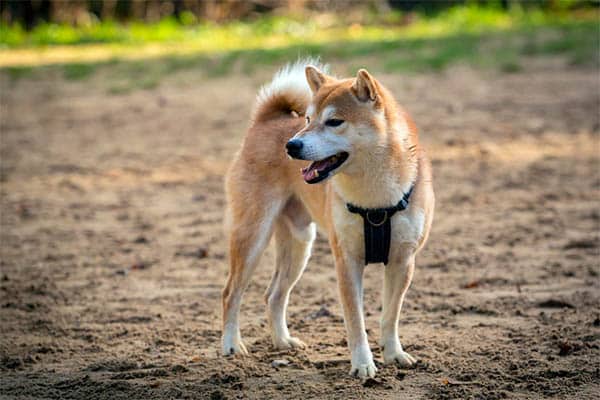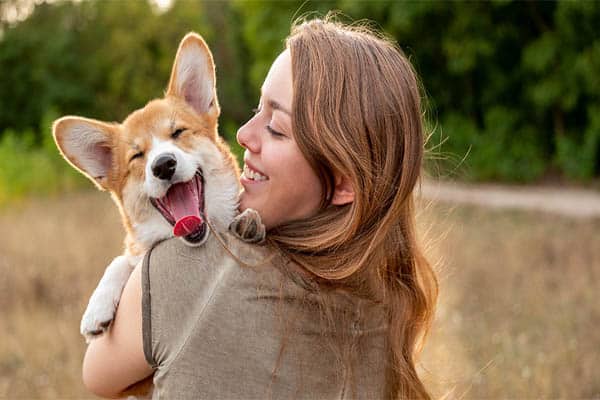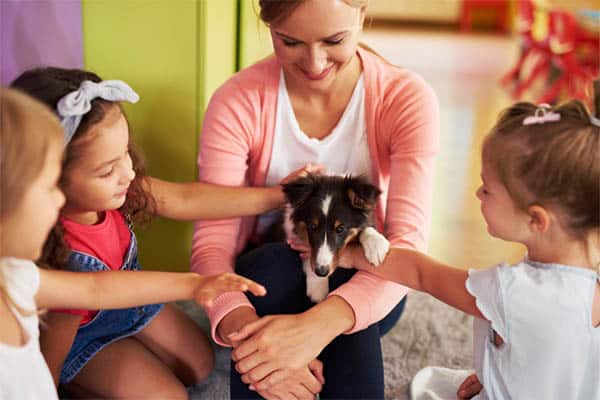[ad_1]
Tips To Find Pet Classes:- Pet training can be a challenge for even the most patient pet owner. After all, most of us are used to responding to our pets’ behavior on an instinctual level. But as any animal lover knows, animals are very much creatures of habit.
It can be difficult to establish new routines and change old ones. However, with the right techniques, pet trainers can make the process easier and more effective than you might think. While it is up to you and your pet how much time you invest in their training,
there are numerous strategies that can make it less stressful for both of you. The first step in this process is finding a reputable trainer who has experience with similar cases as yours. Here is how you do that:
Tips To Find Pet Classes
1) What are the Benefits of Taking Your Pet to Classes?
Pet training can be extremely beneficial for both owners and pets. A trained pet is easier to live with, reduces stress on owners, and can lower the risk of a pet being rehomed. The health benefits of training are even more significant for senior pets, who may have some reduced mobility or vision issues.
Several studies show that pet training can reduce blood pressure, heart rate, anxiety, and even pain and stress levels in humans. Training pets also promotes positive, healthy habits and can be incredibly beneficial for improving socialization, especially in young animals. It is also a great way to spend time with your pet and strengthen the bond between you!

2) Which Type of Animal is Best Suited for a Class?
There are many different types of animals that can benefit from training. However, some animals and breeds thrive in training environments while others do not. Here are some pet types that are best suited for training: Small and medium-sized breeds have the advantage of being able to interact with other animals in the class.
These animals also tend to respond well to positive reinforcement and are often very social. Working and sporting breeds are fantastic for training because they already have the skills necessary to excel in these fields. These breeds are often very intelligent and respond well to praise. Large breeds are often excellent for training as well.
However, they may respond best to negative reinforcement. Small animals, such as ferrets, rabbits, or guinea pigs, can also benefit from training. These animals often respond best to positive reinforcement, but you may need to be a little more careful with them.

3) How to Find the Right Pet Class for Your Friend
Finding a pet class for your pet can be challenging, but it is important to find the right fit for your needs. First, ask yourself some questions about your pet to narrow the field. Here are some common questions pet owners ask themselves when looking for classes: -Age: Young animals often benefit from training, but it can be difficult to establish new habits due to their energy levels.
Senior pets can also benefit from training, as it can reduce anxiety and pain. -Breed: Some breeds respond better to certain methodologies than others. -Environment: If you have other pets at home, you may want to consider their needs as well.
-Health conditions: If your pet has a disability, you may want to find a class that is designed to accommodate animals with special needs. -Personality: Some training styles work better with different types of pets.

4) Activity and Sports Classes
If your pet is more suited to participating in sporting or activity classes, you may be able to find a class at a local pet store or through your veterinarian. -Dog sports: Dog sports like agility, flyball, or disc dog can be a great way to exercise and bond with your pet. These sports often require a trainer and sometimes even a special facility, such-as a dog park. -Dog sports for therapy.
Therapy dogs are specially trained to comfort people who are sick or dealing with disabilities. They can be trained in any breed and at any age. -Cat sports: Some owners take their cats to agility classes, but cats are more likely to respond to games and toys. -Cats can also benefit from fetch and other interactive toys that keep them active.

5) Games and Discussions Classes
If your pet is better suited to a game or discussion class, there are several options. These classes are designed to help your pet understand you better and can be a great way to strengthen your bond. -Canine Good Neighbors: This course is designed to help dogs better understand their human neighbors and avoid barking.
Assistance Dogs: These canines are specially trained to help people with a variety of disabilities. -Horses: If you want to learn more about caring for and training your horse, you can take a course on this topic. -Livestock: If you own chickens or other types of livestock,
you can learn about their needs and how to care for them. -Bird Care: You can learn more about raising and caring for different types of birds. -Wildlife: If you have an interest in wildlife, you can take classes on how to better interact with them.

6) Care and Counseling Classes
If your pet has special needs, you may want to consider a care and counseling class. These courses can be very beneficial to pet owners who have animals that have experienced trauma or have special needs. -Agility for Special Needs: If you have a pet with mobility issues, you can take a special needs class that focuses on agility. -Behavior Modification.
If your pet has behavioral issues, you may want to take a class that teaches you how to change their behavior. -Bird and Exotic Animal Care: If you own birds or other types of exotic animals, you can learn more about their care. -Catering to Feline Friends with Special Needs: If your pet suffers from a disability, you can take a class on caring for them.
Dealing with Challenging Behaviors: If your pet has behavioral issues, you can take a course on changing their behavior. -Dealing with Challenging Behaviors II: If your pet suffers from anxiety or has experienced trauma, you can take a course on coping with these conditions. -Horse Care and Management: If you have horses or want to learn more about them,
you can take a course on equine management. -Livestock Care: If you have livestock, you can take a course on their care and management. -Rabbit Care and Management: If you have rabbits, you can take a course on their care and management. -Small Animal Care and Management: If you have small animals, you can take a course on their care and management.

Also Refer:- Best 7 Ways to Care for Your Pet at Home
Wrapping up
Take your time when choosing a pet training class. Consider the needs of your pet and what type of class would be best for them. You can also consider taking more than one class with your pet as each trainer will likely have a different method and approach.
The sooner you begin training, the more likely your pet is to respond well to the process. Remember to have fun with the process and reward your pet often. This will reinforce good behavior and make the process easier for both of you.




GIPHY App Key not set. Please check settings